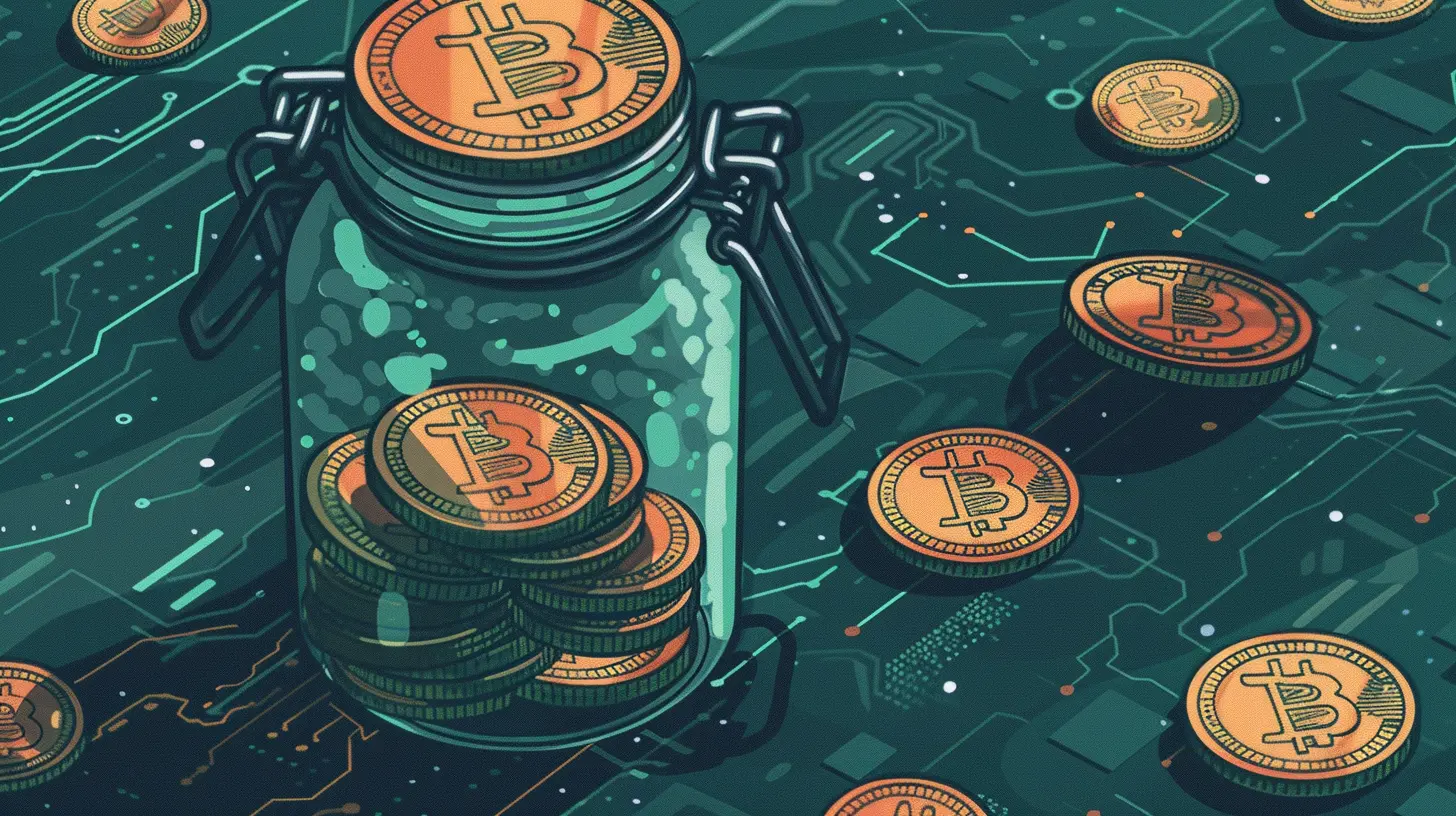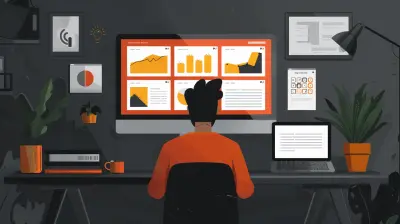How Blockchain is Changing the Face of Crowdfunding
9 October 2025
When you think about crowdfunding, platforms like Kickstarter, GoFundMe, or Indiegogo probably pop into your head. These platforms have revolutionized how startups, creatives, and even personal causes raise money. But guess what? There's a new player shaking up the game, and it’s not just making waves—it’s completely flipping the script.
Enter blockchain. Yup, that same tech behind cryptocurrencies like Bitcoin and Ethereum is starting to transform how crowdfunding works. We’re not talking about small tweaks here. Blockchain is bringing security, transparency, and decentralization to the scene in a way that could make traditional crowdfunding platforms feel like relics from a different era.
So, how exactly is blockchain changing the face of crowdfunding? Let’s crack that open.
Crowdfunding Today: The Good, the Bad, and the Ugly
Before we dive into the blockchain magic, let’s take a quick look at traditional crowdfunding.Crowdfunding as we know it today allows individuals or startups to raise small amounts of money from a large number of people—basically, crowdsourcing your cash. It’s been a blessing for many who couldn’t get bank loans or investor backing.
But there are some not-so-glamorous parts too:
- High platform fees: Sites take a cut—sometimes up to 10%—from the funds raised.
- Middlemen: Projects are often at the mercy of platform policies and payment processors.
- Lack of transparency: Donors don’t always know where their money is really going.
- Risk for backers: Many campaigns don’t deliver what they promise, and there's little accountability.
It’s a bit like ordering food online. Sometimes it’s piping hot and perfect, other times you’re left wondering where your money—and your pizza—went.
Blockchain to the Rescue: What Makes It a Game-Changer?
So what happens when you sprinkle some blockchain into the crowdfunding mix?You get a system that’s transparent, secure, and doesn’t rely on a centralized authority. Let’s break down why that matters.
1. Decentralization Means More Power to the People
In traditional crowdfunding, the platform is the boss. They control the rules, skim off fees, and can even shut you down. With blockchain, there’s no single gatekeeper. Smart contracts (self-executing code with the terms of the agreement directly written in) manage everything.Imagine this: You launch a crowdfunding campaign, and the rules are coded into a smart contract. No one can change them. No fees suddenly pop up. No account gets frozen randomly. It's like having a vending machine that gives you exactly what you paid for—no funny business.
2. Full Transparency Builds Trust
Let’s be honest. There’s always that tiny voice in the back of your head when you're backing a crowdfunding project: “Is this legit?”Blockchain makes all transactions completely visible on a public ledger. Every contribution, every movement of funds—it’s all out in the open. That means no shady accounting, no disappearing funds, and complete peace of mind for backers.
It’s like having access to the kitchen while your meal is being made. You know exactly what's going into it.
3. Security that’s Practically Hack-Proof
Ever worried that your credit card info might get stolen when contributing online? With blockchain, you’re dealing with cryptographically secure transactions. That’s a fancy way of saying: hackers have a much harder time breaking in.Add in the fact that your identity can remain anonymous (if you choose), and you've got a double win—privacy and safety.
4. Lower Fees (Because Who Likes Extra Costs?)
No middlemen = fewer fees. It’s that simple.Blockchain platforms often require only tiny transaction fees, which go to the network (not a greedy third party). That means more of your money actually goes towards the project. And if you're the one launching a campaign, you keep a bigger slice of the pie.
Real-World Examples: Blockchain Crowdfunding in Action
Alright, enough theory. Let’s talk real-world examples.Kickstarter Who? Meet DAO-Funded Projects
DAOs (Decentralized Autonomous Organizations) are like internet-native companies run by code and community voting. They’re using crowdfunding to finance everything from art projects to full-on startups.A cool example? ConstitutionDAO. A group of internet strangers raised over $47 million in Ethereum to try and buy an original copy of the U.S. Constitution. It was wild, transparent, and proof of what’s possible with blockchain.
ICOs and STOs: Crowdfunding Goes Corporate
ICOs (Initial Coin Offerings) and STOs (Security Token Offerings) let blockchain-based startups raise funds by issuing their own tokens. Investors buy these tokens, which can later be traded or used within the platform.Think of it like buying arcade tokens—you can use them in the game or trade them with others. Some tokens even provide dividends or voting rights, making you more than just a backer—you’re a stakeholder.
NFT Funding: A Creative Twist
Artists and creators are using NFTs (non-fungible tokens) to crowdfund their work. Sell a few pieces of digital art, and boom—you've got capital for your project. Plus, you’re giving supporters a tangible, tradeable asset.It’s like backers getting a collector’s item that could go up in value over time. Way cooler than a cheap T-shirt.
Challenges? Sure. But Not Deal-Breakers
Now, let’s pump the brakes a bit. Blockchain isn't all sunshine and rainbows.- Regulatory Uncertainty: Governments are still figuring out how to deal with crypto and blockchain fundraising.
- Tech Barrier: Not everyone is comfy using crypto wallets or dealing in tokens.
- Scams and Hype: While transparency helps, the crypto space has had its fair share of shady projects.
But hey, remember when online shopping felt risky? Now it’s totally normal. As blockchain becomes more user-friendly and regulated, these challenges can be ironed out.
The Future: What's Coming Next?
The lines between crowdfunding, investing, and participating are blurring—and blockchain is making it all possible.We’re heading towards a future where:
- Backers hold equity or profit-sharing tokens
- Communities govern projects through voting mechanisms
- Capital can be raised instantly from anywhere in the world
It’s not just about raising money anymore. It’s about building communities, sharing ownership, and democratizing access.
Imagine a world where artists, inventors, or activists anywhere can pitch an idea, and if people believe in it, they fund it—directly, transparently, and securely. No banks. No bureaucracies. No gatekeepers.
That’s the promise of blockchain-powered crowdfunding.
So, Should You Jump In?
If you’re a creator or startup founder, blockchain can give you more freedom, trust, and global reach. If you're someone looking to support the next big thing, it can offer more confidence that your money is going where it should.Sure, it takes a bit of learning. But so did the internet. So did smartphones. And now we can’t live without them.
Blockchain might not replace traditional crowdfunding overnight—but it’s already rewriting the rules of the game.
And honestly? The future looks pretty exciting.
Final Thoughts
Crowdfunding has always been about community, connection, and shared dreams. Blockchain takes those ideals and supercharges them with tech that’s fairer, smarter, and more secure.Whether this is your first time hearing about blockchain crowdfunding, or you’ve already dipped your toes in crypto waters, one thing’s clear—it’s changing the game in a big way.
So the next time you see a project raising funds on the blockchain, maybe take a closer look. You could be witnessing the future of funding in real-time.
all images in this post were generated using AI tools
Category:
Blockchain TechnologyAuthor:

Michael Robinson
Discussion
rate this article
1 comments
Valen Walker
Blockchain is revolutionizing crowdfunding by enhancing transparency, reducing fees, and enabling global participation. This technology fosters trust between creators and backers, ultimately opening new avenues for innovative projects to thrive.
October 15, 2025 at 3:22 AM

Michael Robinson
Thank you for your insights! Indeed, blockchain's ability to enhance transparency and reduce fees is transforming crowdfunding, fostering trust and enabling a broader range of innovative projects to emerge.


